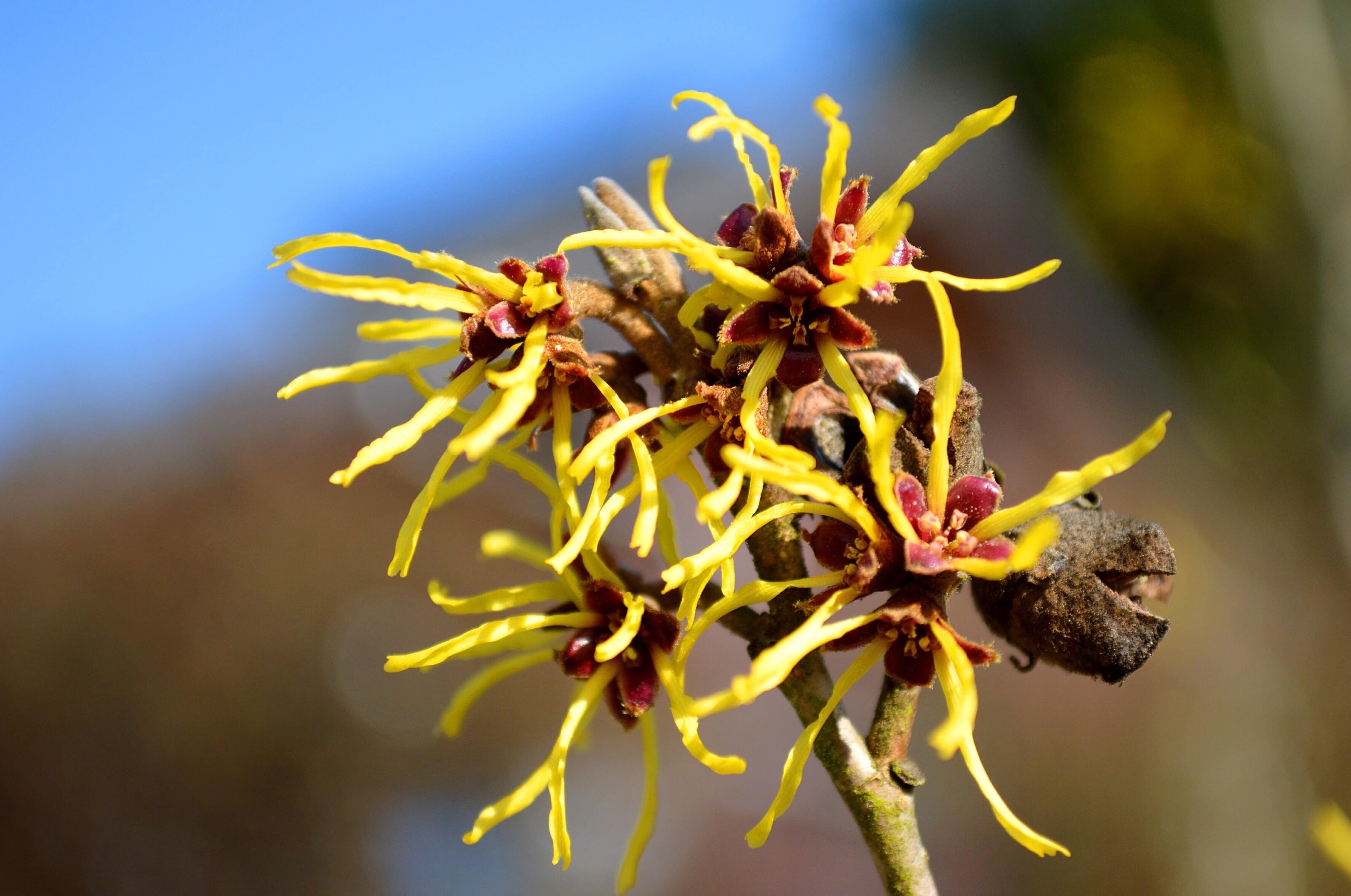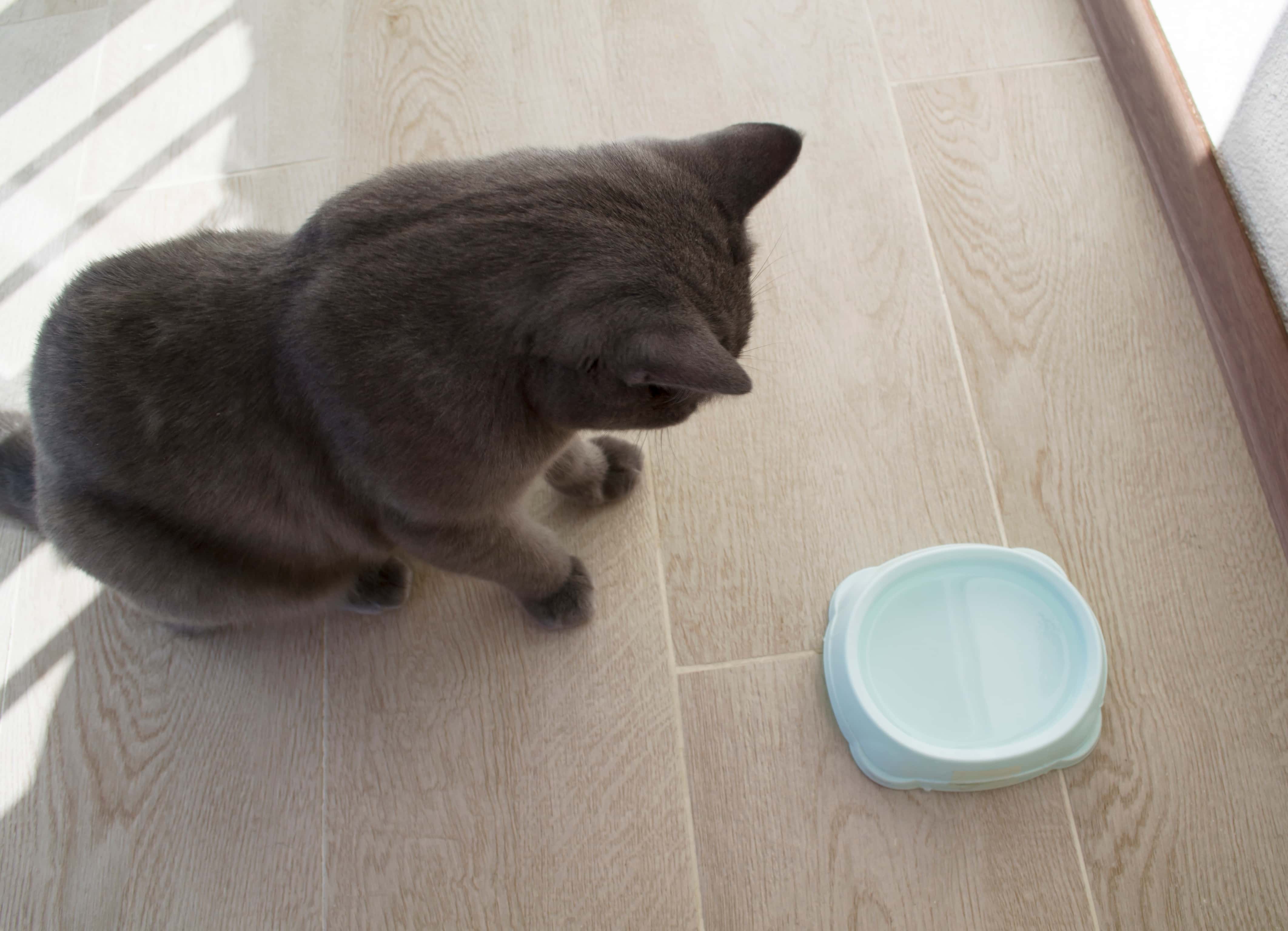Is Witch Hazel Safe for Cats? Vet Approved Risks & Safety Guide
Updated on

Click to Skip Ahead
Witch hazel, a small tree with delicate yellow flowers that strangely resemble spider legs, certainly lives up to its name! Indeed, this North American shrub is well known in human medicine and cosmetics for its astringent and anti-inflammatory properties. Its bark and leaves are commonly used to soothe irritated skin and reduce acne breakouts.
The various benefits of witch hazel for human health are supported by numerous peer-reviewed studies1. However, there is little scientific data regarding the effects of this plant on pets, including cats. Some veterinarians and holistic experts do maintain that topical application of a small amount of witch hazel extract can be beneficial to four-legged friends.
Nevertheless, while topical use of witch hazel itself is not inherently toxic to cats, it is strongly advised to consult your vet before using it on your pet.
With that in mind, let’s look closer at the potential benefits and risks of witch hazel on our feline companions.
What Is Witch Hazel?
Witch hazel is a shrub with medicinal properties that can be used in various ways. The extract derived from its leaves and bark is commonly used in traditional medicine due to its astringent and anti-inflammatory properties. It can be found in many skin and scalp care products.
The healing properties of witch hazel can be attributed to a group of chemical compounds called tannins, which are responsible for the bitter taste of unripe fruits. In addition to relieving inflammation and fighting acne, witch hazel extract can be used to treat hemorrhoids, soothe sore throats, protect against skin damage, and alleviate scalp sensitivity.
Unfortunately, this plethora of health benefits seems to apply mainly to humans. It doesn’t seem to work quite the same way on cats.

Is Witch Hazel Toxic to Cats?
Neither “witch hazel” nor its scientific name, Hamamelis virginiana, appears on the ASPCA’s list of toxic plants for cats2. However, there is limited scientific information regarding its specific effects on cats. While it may not be classified as toxic, its interactions with feline physiology and potential side effects are not thoroughly documented.
That said, the European Agency for the Evaluation of Medicinal Products (EMA) recognized the use of witch hazel in veterinary medicine in a 2000 report3. It mentions that Hamamelis virginiana is “used topically in veterinary medicine as a solution or ointment to promote healing of minor skin wounds, for the treatment of skin inflammations, ulcerations, and dermatoses.” This suggests that witch hazel may indeed have beneficial properties for cats, particularly in the context of skin-related conditions.
However, it should be noted that the EMA report does not provide any specific information regarding the potential toxic effects of Hamamelis virginiana on cats. The committee’s conclusions and recommendations state that:
- The main constituents of Hamamelis virginiana are tannins and saponins, which are believed to not cross the skin and mucous membranes.
- Witch hazel can therefore be used in animals but for topical treatment only.
What Are the Potential Risks of Witch Hazel in Cats?
Although witch hazel alone used topically is not considered toxic to cats, the real dangers may come from other ingredients.
Most commercial witch hazel products are formulated for human use, which means they contain ingredients that may be harmful to your cat, such as isopropyl alcohol, fragrances, or other preservatives. These can cause skin irritation, drying, or even chemical burns on your cat’s delicate skin.
In any case, witch hazel should never be administered in “liquid” form, such as a tea concoction, because its astringent properties can irritate mucous membranes and lead to gastrointestinal upset, such as vomiting or diarrhea.
Importantly, PetMD states that while witch hazel is safe to use topically on dogs, it should not be used to treat dry skin conditions, as it tends to “tighten skin cells and lead to increased dehydration of the skin,” thereby exacerbating these conditions. The same is likely true for cats.

How to Safely Use Witch Hazel on Your Cat
- Before purchasing any type of witch hazel product and applying it to your cat, be sure to get the green light from your veterinarian.
- Ask your vet for a pet-friendly product that is safe to use on your cat’s sensitive skin.
- Check product labels carefully, and avoid any witch hazel products that contain isopropyl alcohol (also called isopropanol), as it can be highly toxic if ingested.
- Apply a small amount to areas of concern, such as inflamed or itchy spots from flea or tick bites. Always keep away from the eyes.
- Once again, be sure to seek advice from your veterinarian beforehand so as not to aggravate any skin conditions or other health issues your cat may suffer from.
Alternatives to Witch Hazel
Using witch hazel is not mandatory to keep your beloved kitty’s skin happy and it will not be well tolerated by many cats. There are plenty of other options for maintaining the health of their skin and coat. But regardless of the choice you make, stick to grooming and cleaning products specifically designed for cats, as these are formulated with their unique needs in mind. Gentle, hypoallergenic shampoos and conditioners, free of harsh chemicals and fragrances, can help treat skin concerns without causing damage.
You could also consider natural remedies, such as oatmeal baths, which can soothe cats with skin irritations or allergies. But if the idea of bathing your cat feels more like a wrestling match than a spa day, look for “safer” alternatives, like adding omega-3 fatty acid supplements and fish oil to their diet.
Either way, always consult your veterinarian before using new products on your cat, especially if they have pre-existing skin conditions or sensitivities.
Bottom Line
The extract derived from the leaves and bark of witch hazel has long been used as a natural topical remedy in human medicine and cosmetics. It contains several compounds with powerful anti-inflammatory and astringent properties, which may be useful in treating various conditions, ranging from acne to scalp sensitivity and hemorrhoids.
Although witch hazel does not appear to be toxic to cats based on available information, its effects on feline health have not been thoroughly studied. Therefore, it is advisable to exercise caution and seek advice from your veterinarian before using witch hazel on your beloved feline companion, especially for topical treatments related to skin conditions.
You will gain peace of mind knowing that your cat is protected from the potential risks of this “witchy” plant.
Featured Image Credit: LisaMsh, Shutterstock












